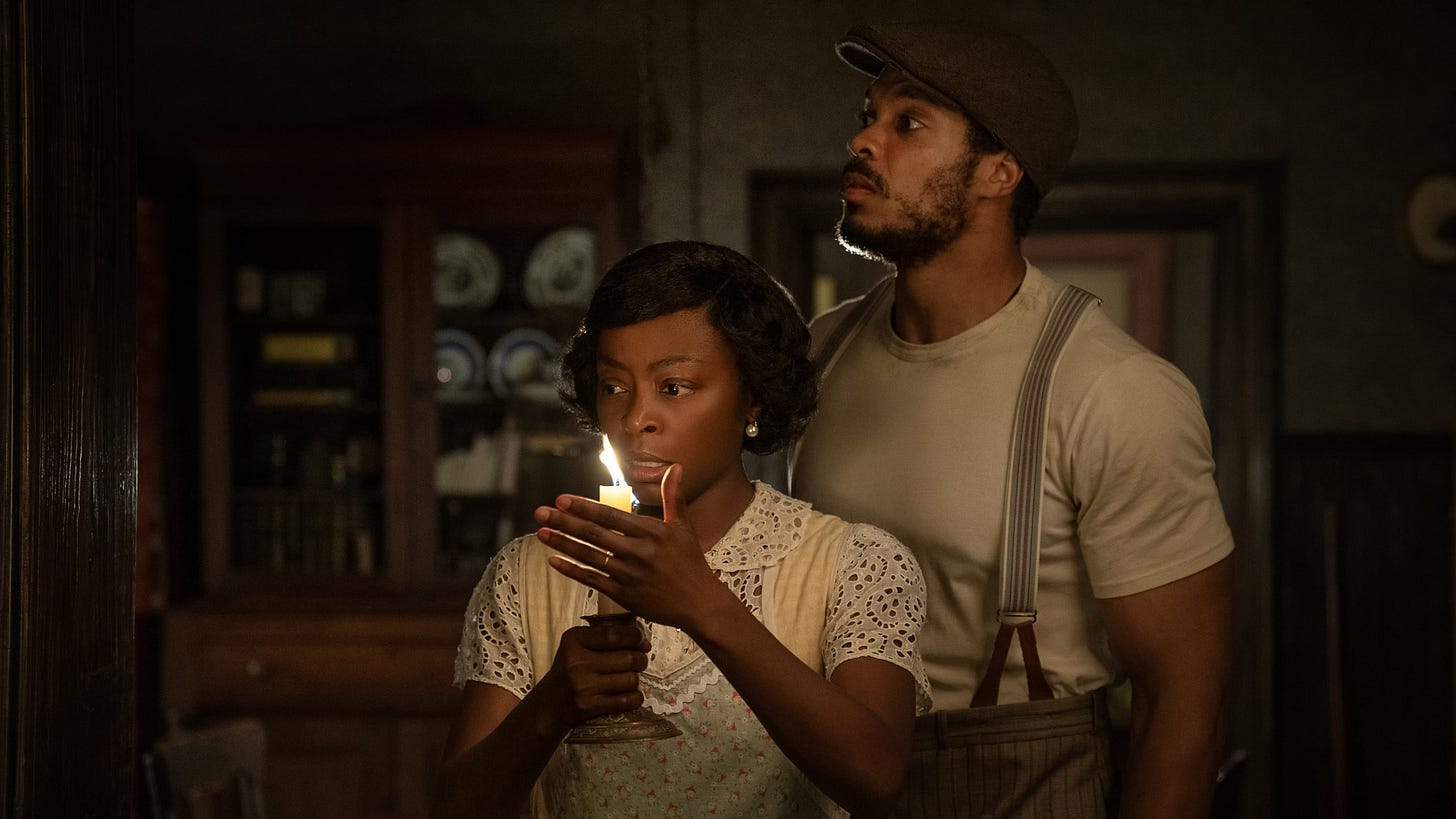Monday new releases: 25 November 2024
Blitz is streaming on Apple TV+, The Piano Lesson and Daughters are streaming on Netflix and Wicked: Part One and Goodrich are in cinemas
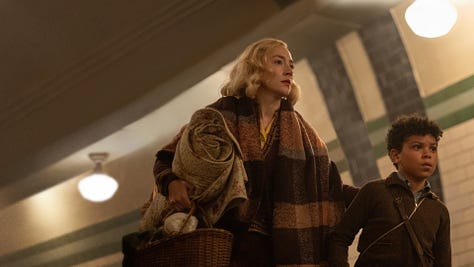
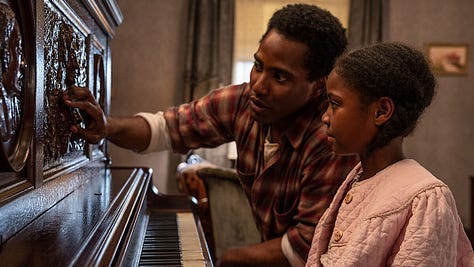
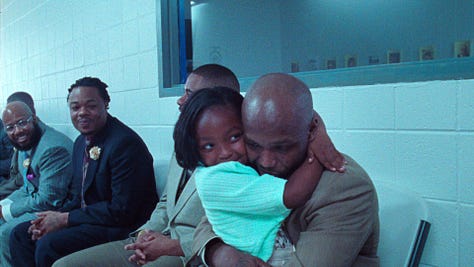
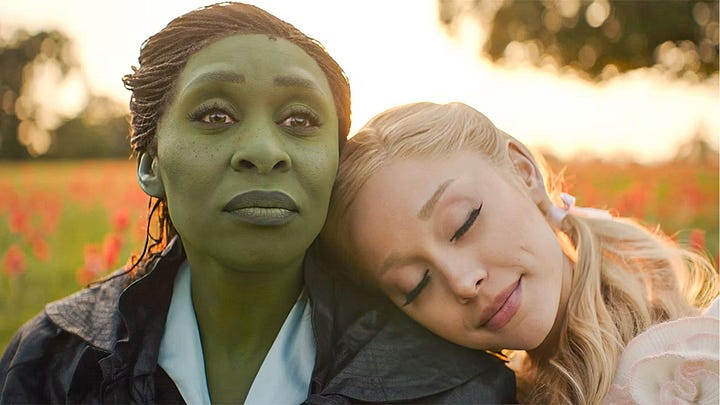

With only a month to go until Christmas, the battle for our attention is heating up with more and bigger films arriving in cinemas and online.
On Saturday night, we had to make a choice between two new Netflix films from their under-resourced ‘classy’ department – Bill Nighy and Thomasin McKenzie in the IVF history Joy or the new adaptation of August Wilson’s Pulitzer Prize-winning play The Piano Lesson. We’ll try and get to Joy next week.
Steve McQueen’s Blitz is one of the biggest achievements of the film year but – in a response that is utterly unfair to what he has made – I found myself feeling that it could have been even better and then disappointment when it didn’t turn out that way.
I’ve always said that critics should respond to the film in front of them and not the film that you wanted so I’m in danger of falling into my own trap but I hope I can explain why.
We’re in the East End of London in late 1940 and the Luftwaffe aerial bombing campaign that gives the film its name is destroying homes, factories and families. Elliott Heffernan is nine-year-old George, living with his single mother Rita (Saoirse Ronan) and his grandfather Gerald (Paul Weller).
Kids his age are being hurriedly evacuated to the country and he is deposited on a train full of strangers against his will, eventually making the fateful decision to jump off and walk back to his family in Stepney. What makes George different – and is largely the reason for this film to exist – is that George’s father was from Grenada in the West Indies and that you can tell that race has already been a source of problems for him growing up.
McQueen makes clear that London in this period was already a multi-cultural and multi-racial community, despite the whitewashing of that history.
The portrait of the city is revisionist in other ways too. We are used to hearing the mythology of the Blitz as being Britain’s finest hour, coming together to resist the Nazi atrocities and rally around in support of each other. Well, there was a bit of that, for sure, but there was also incompetence, fear, anxiety, suspicion and opportunism.
Rita is called in to the manager’s office at the munitions factory where she works and is told that George didn’t make it to his host family. We then swap between the two quests as mother and son attempt to find each other in the ruined city.
The film opens with a devastating sequence of outstripped firefighters attempting to bring a burning building under control. The sequence reminded me of the wartime docudrama Fires Were Started by Humphrey Jennings, but the shockingly modern presentation of the danger has the same impact as the Omaha Beach landing in Spielberg’s Saving Private Ryan.
It wasn’t the only time that I thought of Spielberg. George’s odyssey through London and its characters reminded me of his masterpiece Empire of the Sun – and that’s where I found myself wishing that the film levitated like those Spielberg films but it never quite manages to do that.
McQueen’s eye is tremendous and there are plenty of arresting compositions and some jaw-dropping moments, but it doesn’t flow the way that a Spielberg version of this would. Like I say, it’s not a fair comparison, and I’m sure a rewatch would encourage me to see more of what Blitz is rather than what it isn’t.
I was a big fan of Denzel Washington’s Fences, his 2016 adaptation of August Wilson’s 1987 play, so when I heard that he was going to produce another Wilson play (and possible even more) I was pretty keen.
For The Piano Lesson – Wilson’s follow-up to Fences and part of the Pittsburgh Cycle of ten plays recording 20th century African-American life in one suburb – Washington has handed the creative torch over to the next generation (he also produced the Wilson adaptation Ma Rainey’s Black Bottom for Netflix in 2020). It’s written and directed by one son, Malcolm, and stars another, John David.
Like Fences, Wilson constructs his story around one central symbol. The piano resides in the Pittsburgh home of Berniece (Danielle Deadwyler from the brilliant Till a couple of years ago) and for some reason she chooses not to play it. Her brother Boy Willie (John David Washington) arrives from the country with a truck full of watermelons to sell and the chance of buying some land for himself to farm.
The watermelons will only provide a third of the downpayment, however. His savings are another third. And his share of the sale of the piano would complete the deal. But Berniece is having none of it.
The piano connects her to her ancestors and not much else does. The play becomes – among lots of interesting things – a debate between holding on to the past or investing in the future. And can you even have a future if you can let go of the past so easily?
Wilson was one of the great dramatists of the last century with a knack for putting multiple honest conflicts together in a room through the vehicles of strong characters and sharp dialogue.
Daughters is more of a recent rather than new release – it arrived on Netflix back in August – but somehow the gods of the algorithm kept it from me until this week.
I thought I would drop it in here, though, rather than giving it a column of its own, because it connects to our other remaining titles this week – all three are about the broken bonds between fathers and daughters.
Chad Morris and Angela Patton’s documentary is about the all-too-rare programme of '“Daddy Daughter Dances” that bring incarcerated men back into contact with their children, and back into contact with their own humanity and sense of hope at the same time.
In a Washington D.C. prison, we meet a group of men who have been selected to trial this experiment. Part of the deal is that there will be ten weeks of group work done with a facilitator to prepare for the emotional wrench of the visit and we get to listen in as these men tell the stories of repeated trauma and loss that has brought them – and in many cases will keep them – there.



